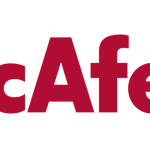- Branche: Software
- Number of terms: 9143
- Number of blossaries: 1
- Company Profile:
A sniffer is a software program that monitors network traffic. Hackers use sniffers to capture data transmitted over a network.
Industry:Software
A string is a consecutive series of letters, numbers, and other characters. "afsH(*&@~" is a string; so is "The Mad Hatter. ” Anti-virus applications often use specific strings, called virus signatures, to detect viruses. Also see: signature.
Industry:Software
A ZIP file is a compressed file. A zip archive contains compressed collections of zipped files. ZIP files are popular on the Internet because users can deliver multiple files in a single container, and the compressed files save disk space and download time. A ZIP file can contain viruses if any of the files packaged in it contain viruses, but the ZIP file itself is not directly dangerous. Other archive files include RAR, and LHA files. This file type has the extension ZIP.
Industry:Software
Worms are parasitic computer programs that replicate, but unlike viruses, do not infect other computer program files. Worms can create copies on the same computer, or can send the copies to other computers via a network. Worms often spread via Internet Relay Chat (IRC).
Industry:Software
A DNS server helps users find their way around the Internet by translating each web site’s IP address, which is a string of numbers, into its easy-to-remember domain name.
Industry:Software
Password sniffing is the use of a sniffer to capture passwords as they cross a network. The network could be a local area network, or the Internet itself. The sniffer can be hardware or software. Most sniffers are passive and only log passwords. The attacker must then analyze the logs later. Also see: sniffer.
Industry:Software
Pharming is the exploitation of a vulnerability in DNS server software that allows a hacker to redirect a legitimate web site's traffic to a counterfeit web site. The spoofed site is designed to steal personal information such as usernames, passwords, and account information.
Industry:Software
Polymorphic viruses create varied (though fully functional) copies of themselves as a way to avoid detection by anti-virus software. Some polymorphic virus use different encryption schemes and require different decryption routines. Thus, the same virus may look completely different on different systems or even within different files. Other polymorphic viruses vary instruction sequences and use false commands in the attempt to thwart anti-virus software. One of the most advanced polymorphic viruses uses a mutation engine and random-number generators to change the virus code and its decryption routine. Also see: mutating virus.
Industry:Software
To reset is to restart a computer without turning it off. This is also called a warm boot.
Industry:Software
